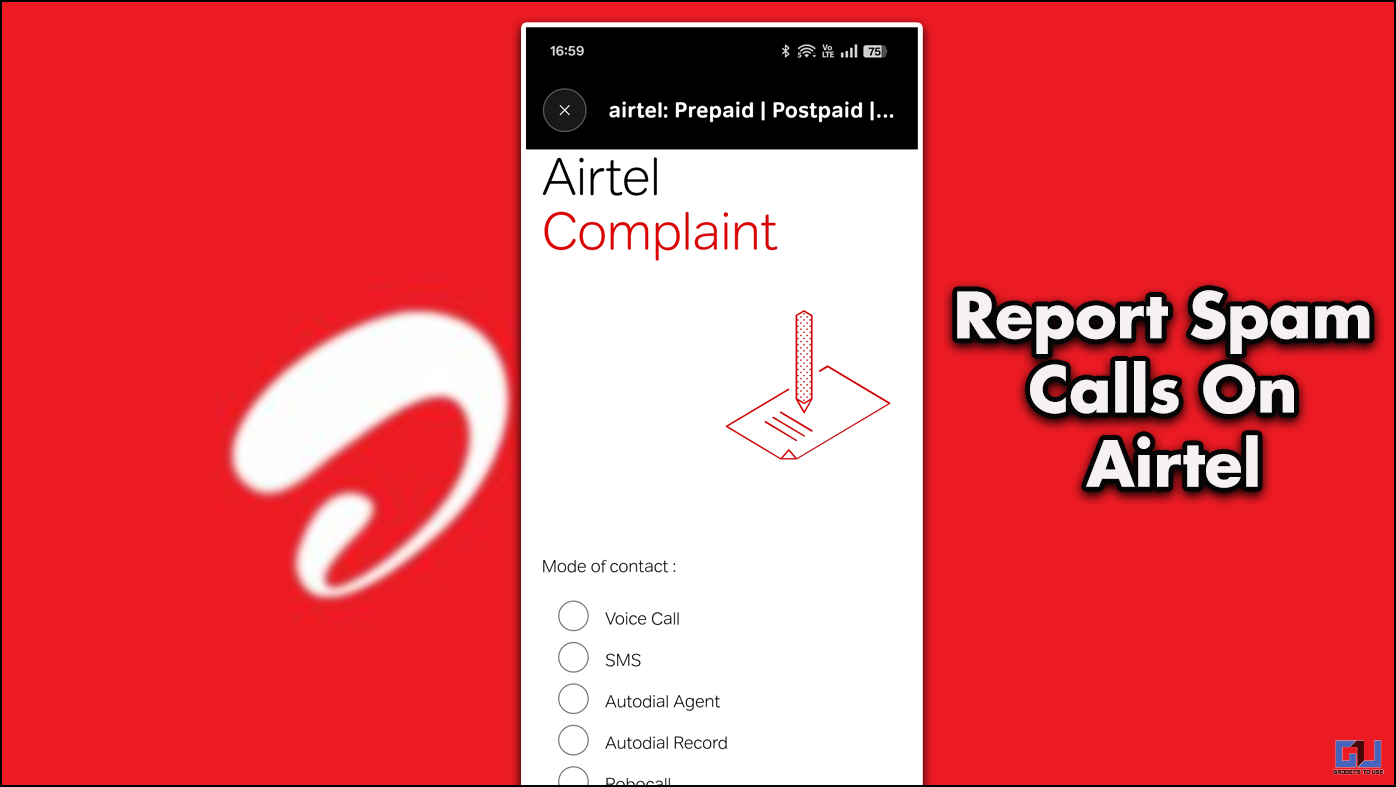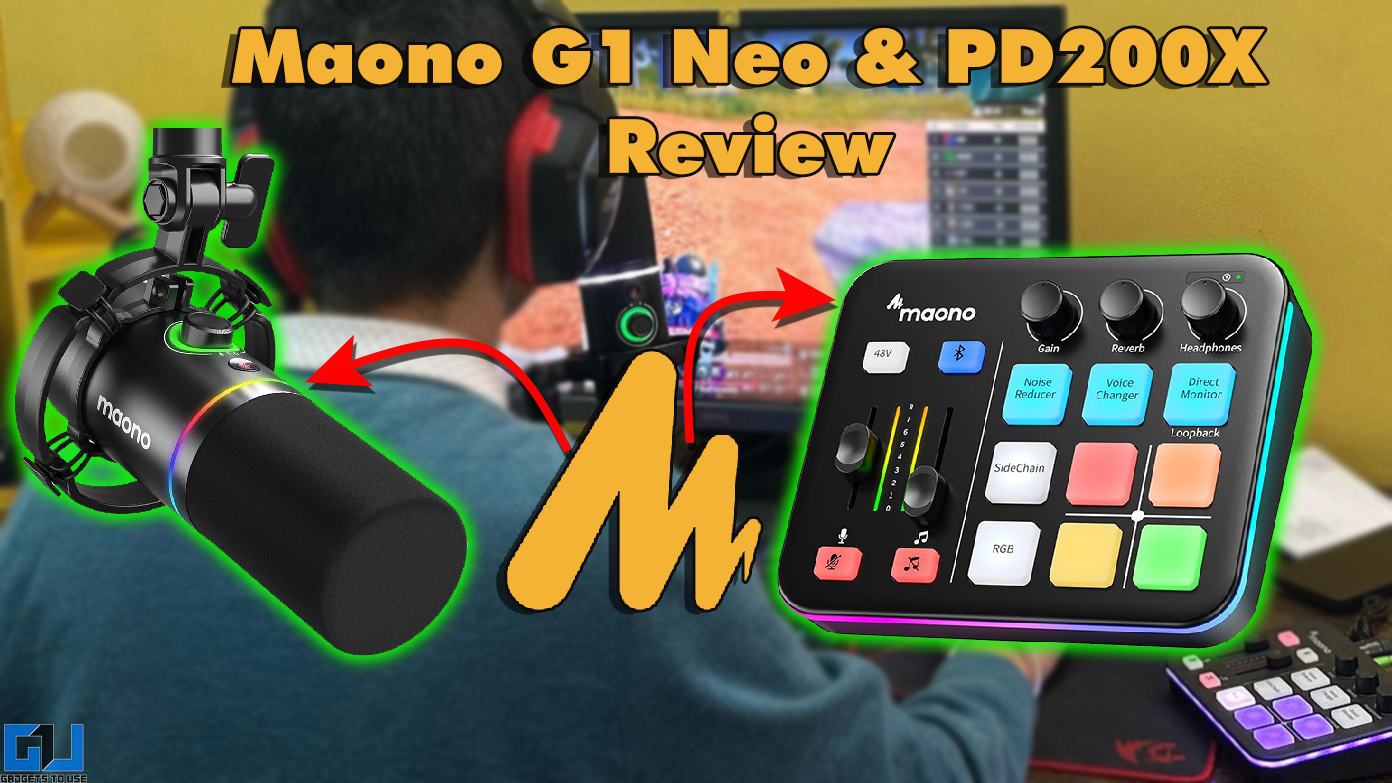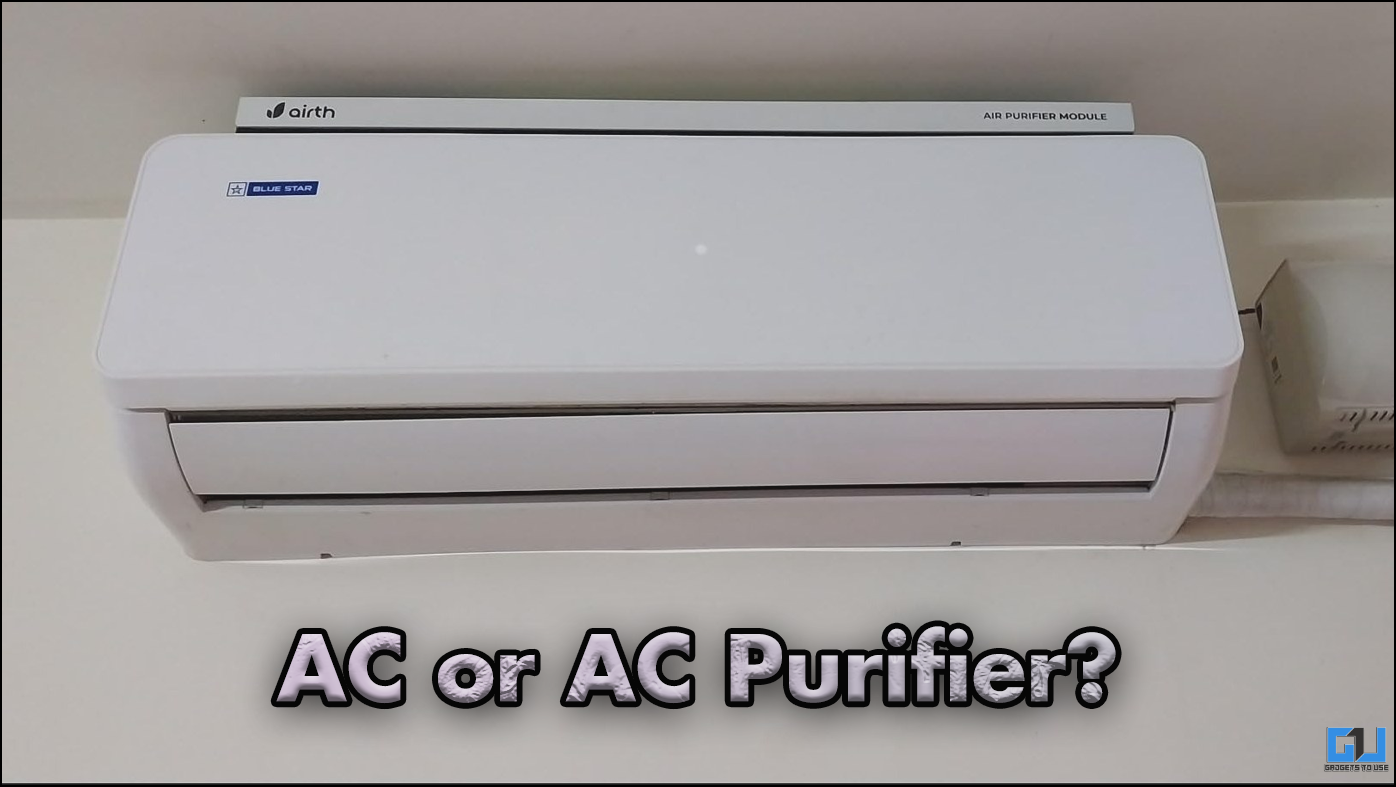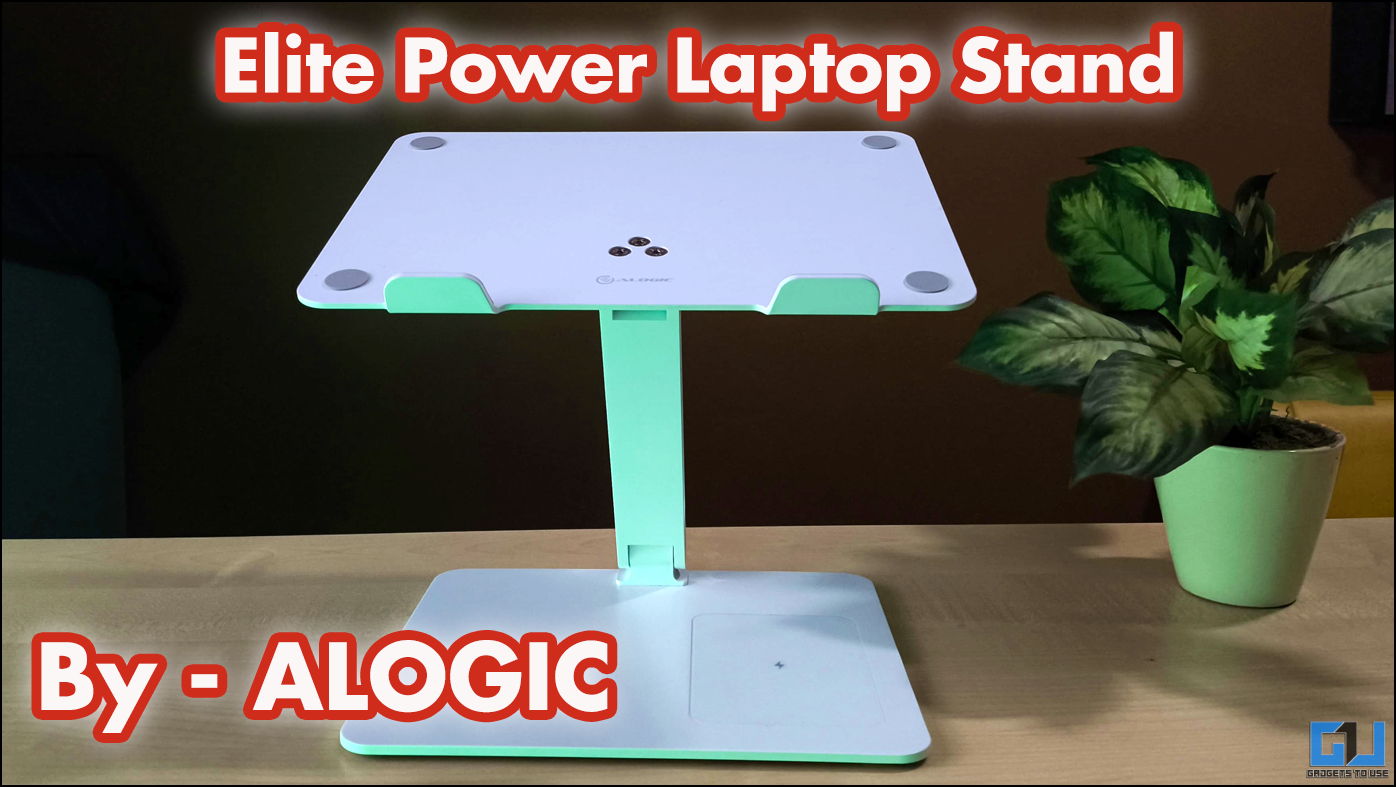Quick Answer
- It is too soon to tell anything about the actual battery usage on both these smartphones, but for testing out the battery performance on both these devices, we ran the Lab 501 test on both of them, and then recorded the results as follows in the battery drop in both the phones.
- The only problem I noticed with the devices when gaming was that the speaker is really easy to cover up, especially on the Galaxy S7 Edge, because of really slim edges to hold on to.
- For testing out the gaming performance on these devices, we played Asphalt 8, Dead Trigger 2, Modern Combat 5 Blackout on the Samsung Galaxy S7 Edge, and Gangster 4, and UFC on the Samsung Galaxy S7.
Samsung launched the new Galaxy range of smartphones, their Galaxy S7 and S7 Edge at Mobile World Congress this year, and they have already made their way to India. They were launched in India in an event held in New Delhi last week, and they are going on sale from tomorrow, 18th March 2016. I’ve been using the phone for a few days now, and I’ve played a few games on the device. Today, let me enlighten you upon the gaming performance of the device
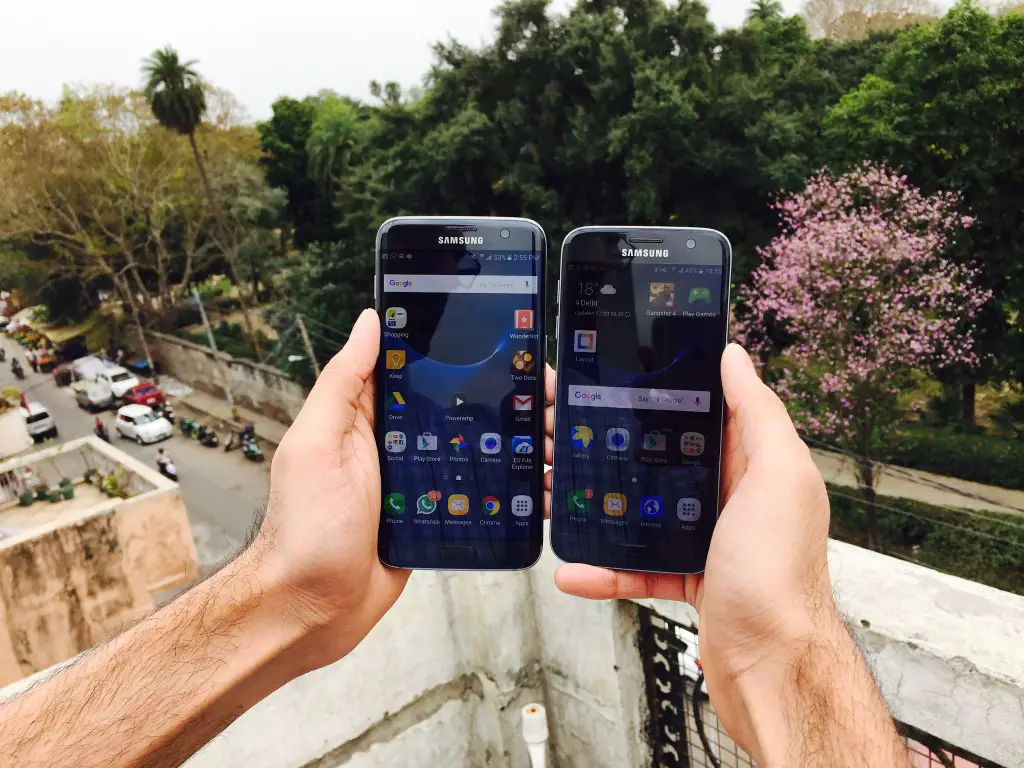 Samsung Galaxy S7 and S7 Edge Specifications
Samsung Galaxy S7 and S7 Edge Specifications
[table id=433 /]
Terms Explained
For Gaming:-
- Great- Game launches without delay, No lags, No frame drop, Minimal heating.
- Good- Game launches without delay, Small or negligible frame drops, Moderate heating.
- Average- Takes time to launch initially, Visible frame drops during intense graphics, Heating increases with time.
- Poor- Takes long to launch the game, Huge lags, Unbearable heating, Crashing or freezing.
For Battery:-
- Great- 1% battery drop in 10 minutes of high-end gaming.
- Good- 2-3% battery drop in 10 minutes of high-end gaming.
- Average- 4% battery drop in 10 minutes of high end gaming
- Poor- More than 5% of battery drop in 10 minutes.
Hardware Overview
The Samsung Galaxy S7 and S7 Edge are powered by a Exynos 8890 processor, coupled with 4GB of RAM and 32GB of internal storage. Fortunately, this year, you can extend the storage of your Samsung Galaxy S7 and the S7 Edge. It can accept microSD cards up to 200GB in size. The main difference between the two phones comes in when you take a look at their display. The Galaxy S7 features a 5.1-inch display whereas the S7 Edge features a bigger 5.5-inch display.
In terms of the benchmark scores, here are the benchmark scores for both these devices. We ran Antutu Benchmark, Geekbench 3, Nenamark2, and Quadrant Standard.
[table id=435 /]
Gaming Performance
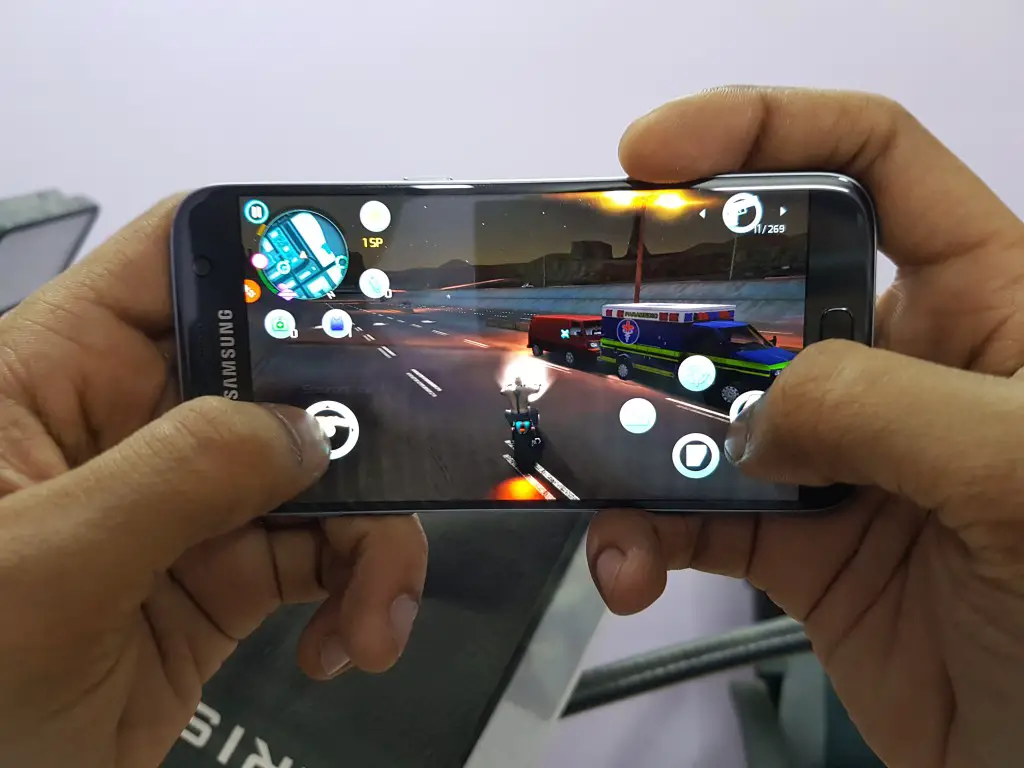
Gaming performance on the Galaxy S7 and S7 Edge has blown my mind. While playing any game, I did not notice any sort of lag or frame drops, and I did play some intense games as well. The best part about gaming with the phone was that the phone just did not want to heat up at all. This is probably because of the liquid cooling that you find in the smartphone.
For testing out the gaming performance on these devices, we played Asphalt 8, Dead Trigger 2, Modern Combat 5 Blackout on the Samsung Galaxy S7 Edge, and Gangster 4, and UFC on the Samsung Galaxy S7. Here are the battery drain and temperature gain stats for both these smartphones
Samsung Galaxy S7
[table id=434 /]
Samsung Galaxy S7 Edge
[table id=438 /]
The only problem I noticed with the devices when gaming was that the speaker is really easy to cover up, especially on the Galaxy S7 Edge, because of really slim edges to hold on to. I noticed this mostly while gaming only, because that’s the only time that I actually used the phone in landscape mode more or less.
Battery Performance
The Samsung Galaxy S7 and S7 Edge have a different battery packed inside them. The Galaxy S7 has a 3000mAh battery, whereas the S7 Edge has a 3600mAh battery. It is too soon to tell anything about the actual battery usage on both these smartphones, but for testing out the battery performance on both these devices, we ran the Lab 501 test on both of them, and then recorded the results as follows in the battery drop in both the phones. As far as the temperature goes on both the phones, there wasn’t anything to report as the temperature didn’t rise more than 0.3 degrees, which is inside the margin of error for the phone.
[table id=439 /]
Conclusion
Overall, the Samsung Galaxy S7 and S7 Edge pack a great processor inside them, with decent RAM management. The games ran really great on both these devices, without any much differences. The only interesting thing to note was the battery drop on both the phones. Also, the slight heating with Gangster 4 on the Galaxy S7. Other than that, these flagship devices from Samsung this year perform extremely well.


